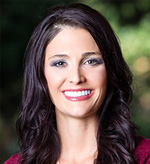Who’s Going to Get It: Do You Really Know the Beneficiaries of Your Dynasty Trust?
 Today many estate plans contain irrevocable dynasty trusts that will continue for the benefit of a spouse’s lifetime and then for the benefit of several generations. Since these trusts are designed to span multiple decades, it is important that they clearly define who will be included as trust beneficiaries at each generation.
Today many estate plans contain irrevocable dynasty trusts that will continue for the benefit of a spouse’s lifetime and then for the benefit of several generations. Since these trusts are designed to span multiple decades, it is important that they clearly define who will be included as trust beneficiaries at each generation.
Who Are Your Descendants?
In the past the definition of “descendant” was straightforward: A person who can be traced back to a specific ancestor through the same blood lines. But the modern family now encompasses much more than just blood heirs:
o Adopted beneficiaries. In your trust, should the definition of “descendant” include a minor child who is legally adopted by your child, grandchild, or great grandchild? What about an adult who is legally adopted by your child, grandchild, or great grandchild? What happens if your child, grandchild or great grandchild gives up their naturally born child for adoption, should your blood heir who has been adopted away from your family be included as your descendant? You should consider specifically including or excluding adopted minor and adult beneficiaries in the definition of “descendant” used in your trust agreement.
o Stepchildren. In your trust, should the definition of “descendant” include a stepchild of your child, grandchild, or great grandchild who is never legally adopted by your heir but otherwise treated like one of their own? While you may have the opportunity to get to know your stepchildren (and even your step grandchildren) and choose to specifically include them or exclude them in the definition of your descendants (in fact, you may want to include some and exclude others), it will be important to decide and communicate whether stepchildren in later generations should be included or excluded as beneficiaries of your trust.
o Beneficiaries conceived using “assisted reproductive technology.” In your trust, should the definition of “descendant” include a child, grandchild or great grandchild conceived using artificial insemination? What about a child, grandchild or great grandchild conceived using a surrogate mother? What about a child, grandchild or great grandchild conceived using an anonymous sperm or egg donor? While no one knows what the future definition of “assisted reproductive technology” will encompass, the definition of “descendant” in your trust agreement should specifically include or exclude heirs conceived using assisted reproductive technology.
Carefully Defining Your Trust Beneficiaries Will Keep Your Heirs Out of Court
Who may be your “descendant” twenty, thirty, or even fifty years into the future should be carefully considered when creating a trust that is intended to last for multiple generations. Clearly defining the class of beneficiaries who will be entitled to receive distributions from your trust will allow for a smooth transition between generations and keep your heirs and trustees out of court.
If you have questions about the definition of “descendant” used in your trust or would like to discuss how you can clearly define your trust beneficiaries, please call our office.










